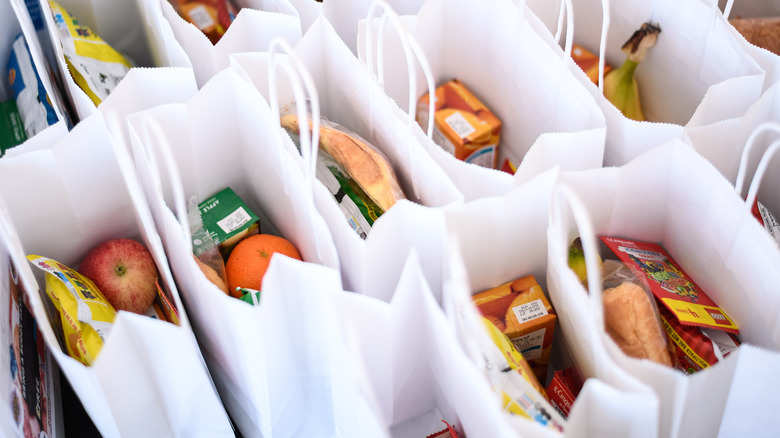The Real Reason Missouri Distributed So Few Free Meals To Kids
The U.S. Census Bureau reports that in 2020, the number of children living in poverty rose to 16% nationwide. In order to ease the cost-of-living burden, many schools offer programs for free or reduced cost meals to students who live in lower income households. The COVID-19 pandemic, coupled with rising food costs due to inflation, increased poverty rates globally, according to World Bank Blogs. Families who may have already been struggling with food insecurity are now facing even more challenges and could struggle more with attempts to recover financially.
At the start of the COVID-19 lockdown in March 2020, federal waivers began allowing schools to offer free meals to students without applications, reports the School Nutrition Association. For children participating in remote learning, parents were able to pick up lunches from the school and bring them home to feed their children. Unfortunately, one state has seen a significant decrease in the number of meals distributed to students during the summer.
Tighter meal restrictions without the waiver
Out of all 50 states, Missouri was the only one that did not opt in to a waiver for grab-and-go meals, reports NBC News. The waiver would have allowed for parents to pick up meal kits for qualifying school-age children. Instead, children are required to eat on-site during limited hours. Despite having food available to distribute, if parents show up without their children and try to take meal kits to go, they will be turned away.
In some areas of Missouri, as high as 97% fewer meals were distributed as compared to last summer, NBC News states, despite over half of all students in those areas qualifying for free or reduced-cost meals. Children of working parents may not be able to attend the specified meal hours, or may struggle with transportation, creating difficulties for meeting the requirements to get free meals in the summer.
Missouri's Governor Mike Parson began shifting the state away from emergency response legislation in April, after declaring an end to the state's public health crisis, according to a press release. The decision to return to pre-pandemic procedures may have played into the governor's decision not to opt in for the waiver.

